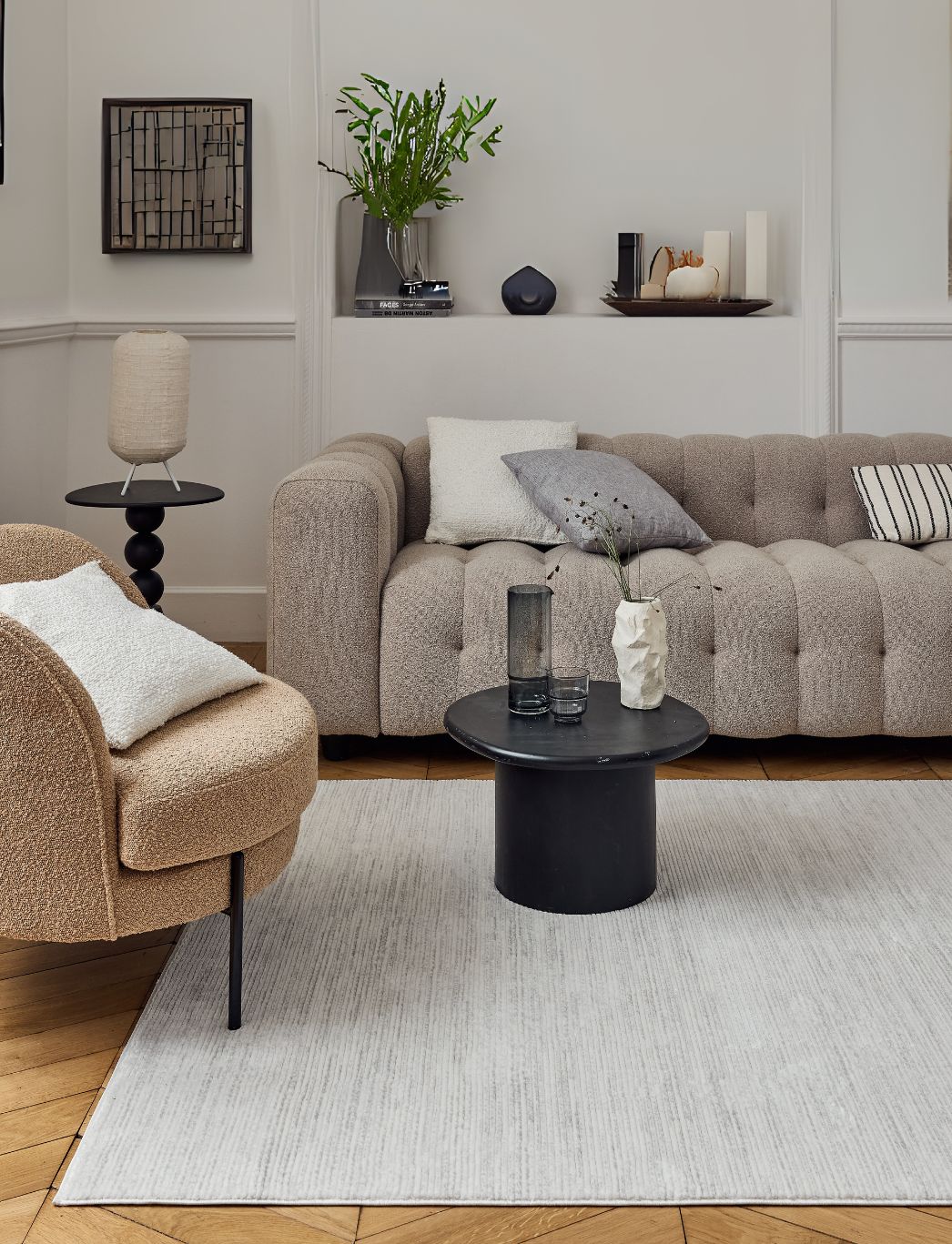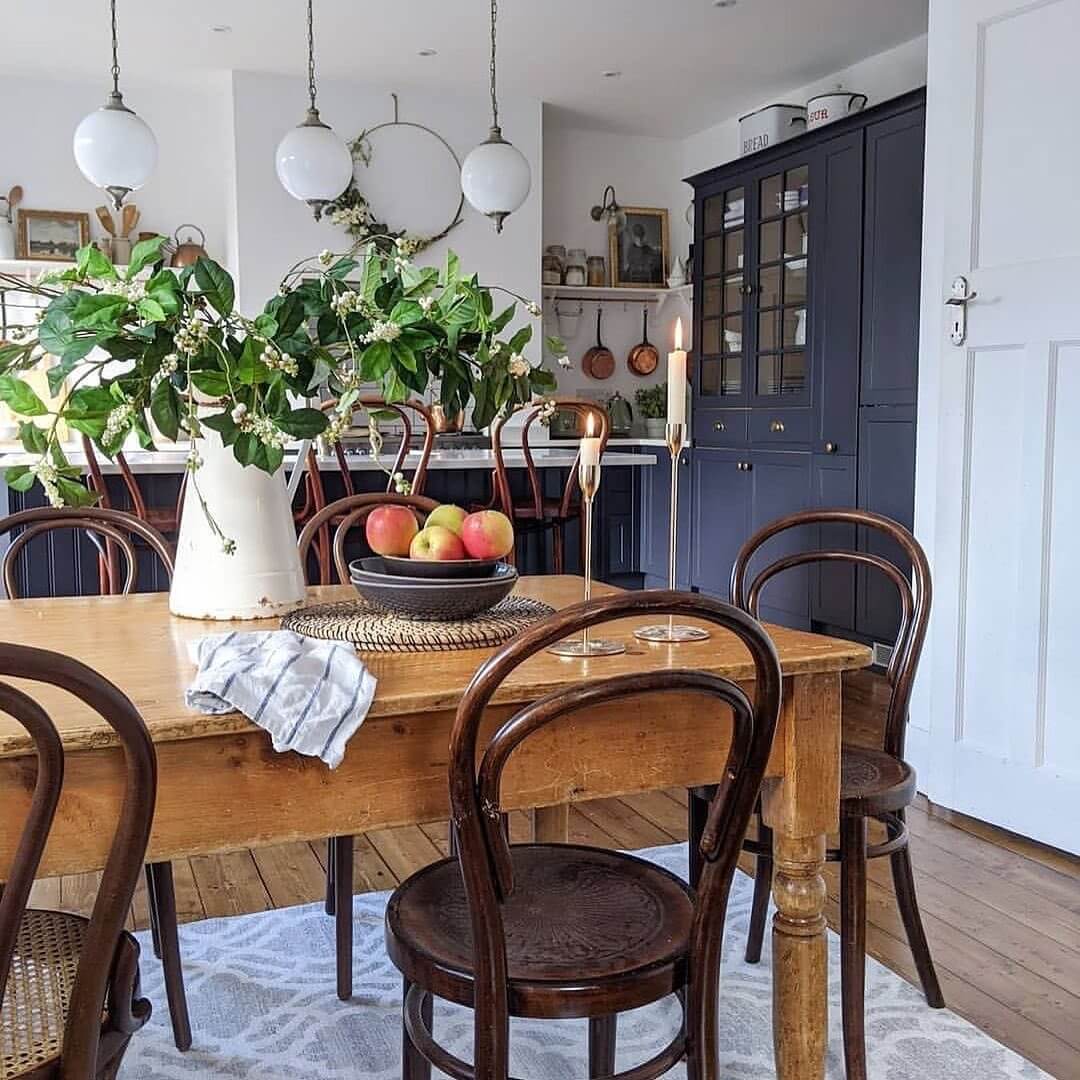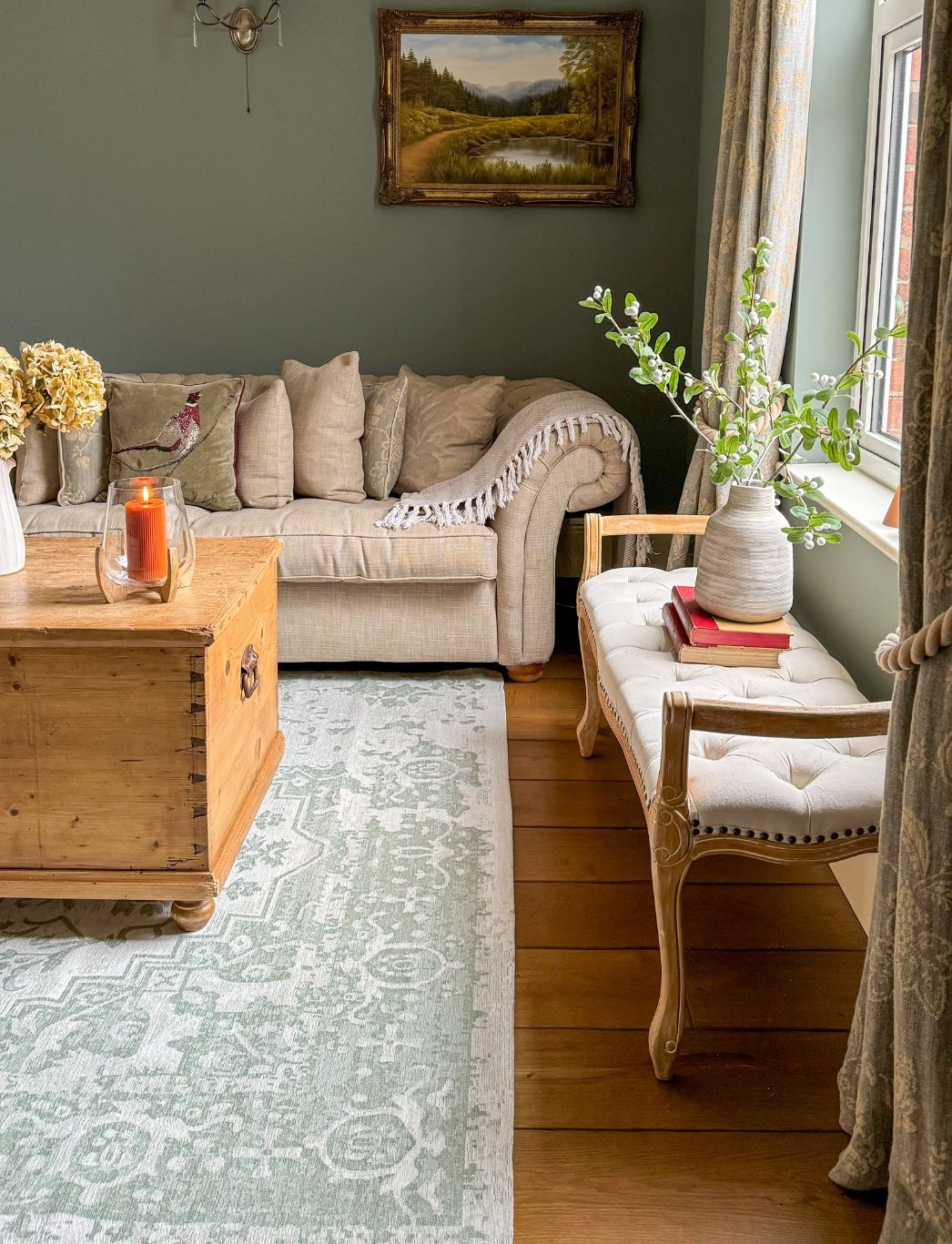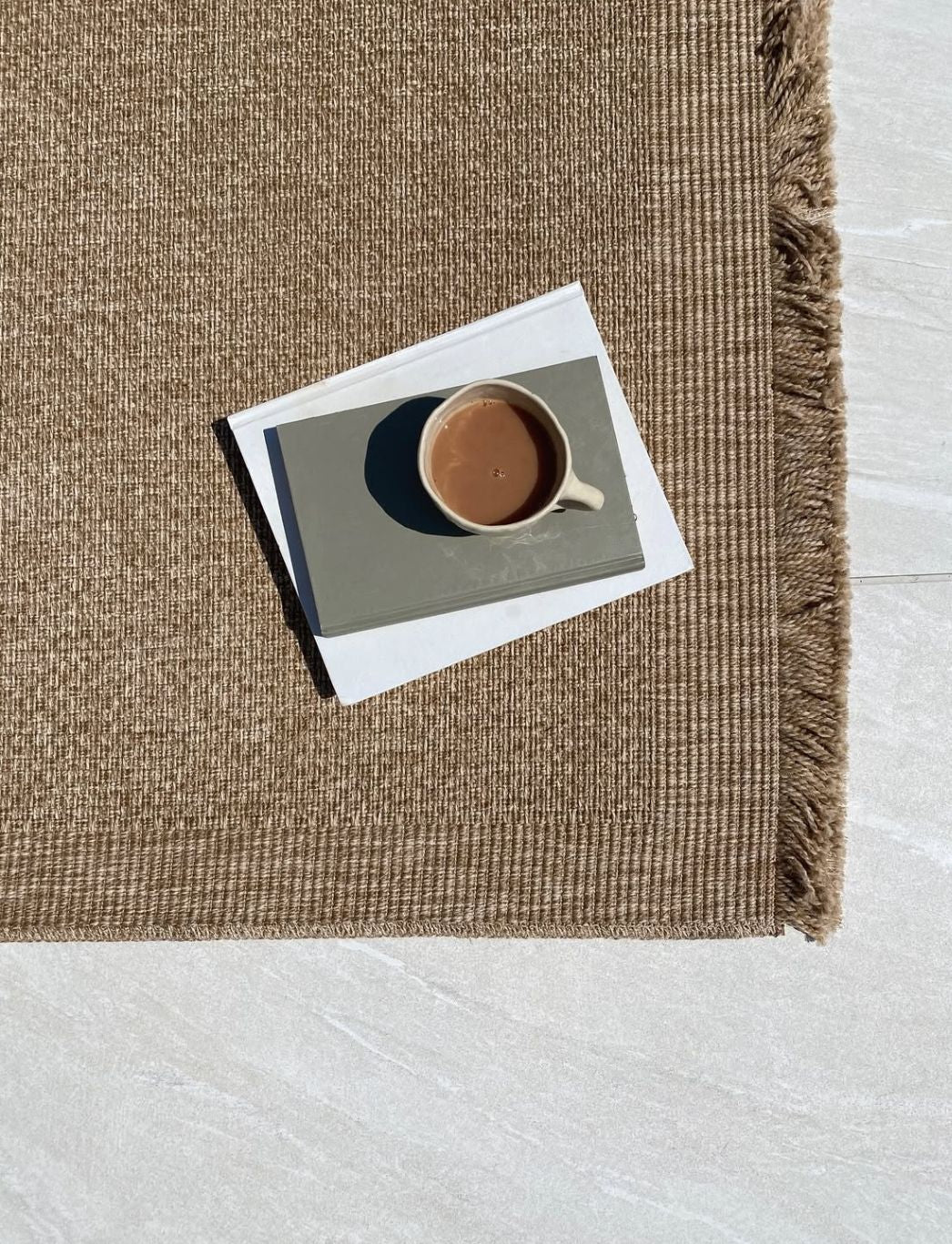How to Keep Spiders Away

Autumn is upon us, which means the arrival of our creepy-crawly friends is here. Most species of our 8-legged friends are harmless.
However, if you are arachnophobic, it wouldn’t matter if a spider can cause any damage or not. You would only want it out of the house. Wouldn’t it be better if you could somehow keep them away from your home and garden? Let’s explore how to keep spiders away through several natural ways.
Natural Ways to Keep Spiders Away from Your Home and Garden
1. Citrus Scents
Spiders do not appreciate citrus scents. In fact, it acts as one of the natural scents that repel them. You can use a citrusy commercial air freshener and spray near your windows and doors to ensure they stay away. This will also make your home smell fresh and completely free of spiders.
You also scatter some lemon peels on the window sill to make sure spiders don’t enter your house.
2. Peppermint Oil
Peppermint oil is another strong scent that repels spiders. You can use essential oil to make a DIY spider repellent spray.
Create a solution by adding 18 to 20 drops of peppermint essential oil to water. Fill a spray bottle with your DIY spider repellent and spray it in any corners where spiders usually reside.
You can spray it around windows, doors, behind bathroom cabinets, and toilets.

3. Keep Fruit Flies Away
Insects are attracted to the food they eat, which is other insects. Spiders love fruit flies and can often be seen around them, ready to trap one in their web.
Hence, it is crucial to keep the areas where you store your fruits clean. However, if it is the other way round and you want to get rid of fruit flies, perhaps leave the spider be.
4. Remove Webs Regularly
Cobwebs are home to spiders. It is also where they trap the insects as food. You must clean out the webs regularly, so there are none in your home. Spiders often create webs on the ceiling or corners of a room. They are easily cleaned with a swipe.
5. Clear Away Clutter
Spiders are attracted to spaces with clutter. So whether it is your home or garden, make sure there is no clutter for the creatures to find solace in.
You must also keep your waste away from windows and try your best to keep your home nice and clean.
6. Fill Up Any Cracks Near Windows and Doors
Spiders can find a way into your home through nooks and cracks that have the slightest bit of available space.
You can go through your entire house and see if there are any open holes or cracks where the spiders can find a way to crawl in. Fill up these cracks and make sure they are sealed.
7. Use Conkers
Conkers are said to be natural spider repellent. However, there is very little research to back this up. Still, you can place several corners in different places in your house.
If it doesn’t work, there is no harm done, and you end up with appropriate home decor for the season (and a nutty, fresh-smelling house).
Remember, conkers can be poisonous for pets like cats and dogs, so avoid using them in your home or consult a vet first.

8. Cinnamon
Cinnamon has a beautiful, pungent smell that is absolutely lovely in a home. It turns out that the strong aroma is something spiders aren’t so crazy about.
You can scatter small pieces of cinnamon sticks in different parts of your home. Remember, cinnamon powder can stain whites.
Typically, the first thought that people have is to burn scented cinnamon candles. Sadly, those do not work, and you need natural cinnamon sticks to keep spiders at bay.
9. Get a Cat
The easiest way to keep any kind of insects away from your home is to adopt a cat. By bringing home a cat, you will never have to worry about insects in your home because your new pet will take care of every one of them.
Takeaway
Now that you know how to keep spiders away, it will be highly unlikely to see a crawling friend in your home. However, if you do spot one, perhaps just let it hide away in a corner. If it is not a false black widow, cellar spider, or woodlouse spider, there is no need to fear it.
These three are the only spiders whose bite can be lethal. Otherwise, make peace with the spider and let them get rid of house flies, mosquitoes, moths, and many other insects in your house.
If you are looking for ways to keep other insects away, or need home decor ideas or interior design guides, follow The Rugs and be inspired to make your home better.
Effective Ways to Keep Spiders Out of Your Carpet

Why are spiders attracted to carpets?
Carpets, with their cozy fibers and hidden crevices, can be an inviting haven for spiders seeking shelter and a hunting ground for their prey. These eight-legged creatures are drawn to carpets for several reasons. Firstly, carpets provide a warm and insulated environment, shielding spiders from temperature fluctuations and harsh conditions. Additionally, the intricate weave of carpet fibers creates a labyrinth of nooks and crannies where spiders can spin their webs and lay their eggs undisturbed.
Moreover, carpets often harbor a variety of insects and other small creatures that serve as food sources for spiders. These tiny pests, such as dust mites, fleas, and carpet beetles, thrive in the dark, humid environment beneath carpets, making it an ideal hunting ground for spiders in search of sustenance.
Common spider species found in carpets
While the presence of spiders in carpets can be unsettling, it's essential to understand the most common species you might encounter. Here are a few notorious carpet-dwelling spiders:
-
House Spider: One of the most prevalent spider species found indoors, the house spider is a harmless, web-spinning arachnid that prefers dark, undisturbed areas like the corners of rooms and beneath carpets.
-
Cellar Spider: Also known as the "daddy long-legs," cellar spiders are easily recognizable by their long, slender legs and small, round bodies. They often construct their tangled webs in damp, secluded areas like basements and crawl spaces, making their way into carpets in search of prey.
-
Hobo Spider: While not as common as the previous two species, the hobo spider has gained notoriety for its potential to cause mild necrotic reactions in some individuals. These spiders are typically found in dark, dry areas like window wells, crawl spaces, and, yes, beneath carpets.
-
Wolf Spider: These ground-dwelling spiders are known for their impressive size and distinctive eye arrangement. While they don't spin webs, wolf spiders may seek refuge under carpets, especially in areas near doors or windows where they can easily enter from the outdoors.
Health risks associated with spiders in carpets
While most common household spiders are relatively harmless, their presence in carpets can pose certain health risks, particularly for those with allergies or compromised immune systems. Here are some potential concerns:
-
Bites: Although rare, spider bites can occur if you accidentally come into contact with a defensive or threatened spider. While most bites from common household spiders result in mild reactions like swelling or redness, some individuals may experience more severe allergic responses.
-
Allergens: Spider droppings, shed exoskeletons, and other debris can accumulate in carpets, potentially triggering allergic reactions or respiratory issues in sensitive individuals.
-
Contamination: Spiders can inadvertently transfer bacteria, fungi, or other pathogens from their outdoor travels into your home, potentially leading to infections or illnesses if ingested or introduced into open wounds.
-
Psychological Distress: For those with arachnophobia (fear of spiders), the mere presence of these eight-legged creatures in their living space can cause significant anxiety and distress, impacting their overall well-being.
How to Keep Spiders Away from Your House
Keeping spiders at bay in your home is a common concern for many homeowners. To effectively deter these eight-legged visitors, start by sealing any cracks or crevices in your walls, windows, and doors. Regular cleaning and decluttering can significantly reduce spider habitats. Consider using natural repellents like peppermint oil or vinegar solutions around entry points. Remember, maintaining a tidy garden near your house can also discourage spiders from venturing indoors.
How to Keep Spiders Away from Home
Creating a spider-free environment in your home requires a multi-faceted approach. Remove existing webs regularly to discourage spiders from rebuilding. Keep your home well-ventilated and dry, as spiders prefer damp, dark spaces. Use cedar wood for storage or as decorative elements, as its natural oils repel spiders. Consider introducing spider-repelling plants like lavender or eucalyptus around your home's perimeter for an added layer of protection.
How to Keep Spiders Away Naturally
For those seeking eco-friendly solutions, there are numerous natural methods to deter spiders. Essential oils such as tea tree, eucalyptus, and lavender are excellent spider deterrents. Create a DIY spray by mixing these oils with water and applying it to potential entry points. Encourage natural predators like birds by setting up feeders in your garden. Chestnuts and horse chestnuts placed around your home are believed to emit a scent that repels spiders.
How to Keep Spiders Away from Bed
Ensuring a spider-free sleeping environment is crucial for a peaceful night's rest. Regularly wash and change your bedding to remove any potential spider attractants. Keep your bedroom clutter-free and vacuum frequently, including under the bed. Consider using lavender-scented products or placing small sachets of dried lavender near your bed, as spiders dislike this fragrance. Ensure your bed is not pushed against the wall, creating a gap that makes it harder for spiders to access.
How to Keep Spiders Away from Patio
Outdoor living spaces can be particularly attractive to spiders, but there are ways to minimise their presence. Keep your patio clean and free of debris, regularly sweeping and washing the area. Use outdoor lighting with yellow bulbs instead of white, as these attract fewer insects, which in turn attracts fewer spiders. Plant mint or lavender around your patio area, as these act as natural repellents. Consider using citrus-based sprays on and around your patio furniture to deter spiders.
How to Keep Spiders Away from Windows
Windows are common entry points for spiders, but you can take steps to make them less inviting. Apply a vinegar solution to your window frames and sills regularly, as spiders dislike the smell. Keep your windows clean and free of dead insects that might attract spiders. Consider installing window screens to provide an additional barrier. Trim any vegetation growing close to your windows, as this can serve as a bridge for spiders to enter your home.

How to Keep Spiders Away Permanently Naturally
While it's challenging to permanently eliminate spiders, you can create a long-term, spider-resistant environment naturally. Incorporate spider-repelling herbs like basil, mint, and rosemary into your garden or as indoor plants. Use diatomaceous earth around the perimeter of your home and in potential entry points. This natural substance is harmless to humans but deters spiders. Maintain a regular cleaning schedule and declutter frequently to reduce hiding spots for spiders.
How to Keep Spiders Away from Front Door
Your front door can be a prime entry point for spiders, but there are effective ways to deter them. Install weatherstripping around your door to seal any gaps. Use a peppermint oil spray around the doorframe and nearby areas, reapplying regularly. Keep outdoor lights away from the door to avoid attracting insects that spiders prey on. Consider placing cedar blocks or balls near your front door, as their scent naturally repels spiders.
How to Keep Spiders Away from My House
Creating a spider-free home environment requires a comprehensive approach. Regularly inspect and seal any cracks in your home's exterior. Keep your garden tidy and free of excessive vegetation close to your house. Use natural repellents like vinegar or essential oil sprays around your home's perimeter. Encourage natural spider predators like birds and lizards in your garden. Remember, consistent cleaning and decluttering inside your home is key to long-term spider prevention.
How to Keep Spiders Away
Implementing a combination of methods is the most effective way to keep spiders at bay. Maintain cleanliness both inside and outside your home. Use natural repellents like essential oils and vinegar solutions. Seal entry points and reduce clutter to minimise hiding spots. Introduce spider-repelling plants around your property. Remember, while complete elimination is unlikely, these methods can significantly reduce spider presence in and around your home.
How to Keep Spiders Away While Sleeping
Ensuring a spider-free sleeping environment is essential for a restful night. Keep your bedroom clean and clutter-free, vacuuming regularly, including under the bed and in corners. Use lavender-scented products in your bedroom, as spiders dislike this fragrance. Inspect and clean your bedding regularly. Consider using a bed canopy for an extra layer of protection. Keep windows closed at night or use fine mesh screens to prevent spiders from entering while you sleep.
People Also Asked
How do I keep spiders out of my carpet?
To keep spiders out of your carpet, focus on prevention and natural deterrents. Vacuum regularly to remove spider webs and eggs. Use essential oils like peppermint or tea tree, which spiders dislike, by mixing a few drops with water in a spray bottle and lightly misting your carpet. Seal entry points around windows and doors, and reduce clutter where spiders might hide. Consider placing cedar blocks or lavender sachets near your carpet, as these scents naturally repel spiders.
What repels spiders the most?
Spiders are most repelled by strong, natural scents and certain household items. Peppermint oil is particularly effective; its strong aroma overwhelms spiders' senses. Other potent repellents include vinegar, citrus, and eucalyptus. Spiders also dislike chestnuts and horse chestnuts; place these around your home's entry points. Additionally, diatomaceous earth, a natural powder, deters spiders by damaging their exoskeletons. Regular cleaning and decluttering also significantly reduce spider populations by eliminating their hiding spots.
What scent do spiders hate?
Spiders have a strong aversion to several scents, making aromatherapy an effective spider deterrent. The most potent scents that spiders hate include:
- Peppermint - the strongest spider repellent
- Eucalyptus - refreshing and spider-repelling
- Tea tree oil - powerful and long-lasting
- Lavender - pleasant for humans, unpleasant for spiders
- Citrus (lemon, orange, lime) - fresh and effective
Use these scents in essential oil form, mixed with water in a spray bottle, or through diffusers to create a spider-free environment.
What stops spiders from coming in your house?
Preventing spiders from entering your house involves a multi-faceted approach:
- Seal entry points - caulk cracks and crevices around windows and doors
- Install door sweeps and window screens
- Remove outdoor debris near your home's foundation
- Use natural repellents like peppermint oil around entry points
- Keep your home clean and decluttered
- Reduce outdoor lighting that attracts insects (spider food)
- Regularly trim vegetation away from your house
Combining these methods creates an effective barrier against spider intrusion.
What's the best home remedy to keep spiders away?
The best home remedy to keep spiders away is a peppermint oil spray. Mix 15-20 drops of peppermint essential oil with water in a spray bottle. Apply this solution around windows, doors, and potential entry points. The strong scent repels spiders effectively and is safe for household use. Reapply weekly for best results. Additionally, vinegar solutions (equal parts white vinegar and water) can be sprayed in spider-prone areas. These natural remedies are eco-friendly, cost-effective, and avoid harmful chemicals.
Is it safe to sleep with a spider in the room?
Generally, it's safe to sleep with a spider in the room. Most house spiders are harmless to humans and actually beneficial for controlling other insects. However, if you're in an area known for venomous spiders, it's best to remove the spider safely. To ease your mind:
- Identify the spider species if possible
- Keep your bed away from walls and furniture
- Use bed risers to elevate your bed
- Consider using a mosquito net for peace of mind
Remember, spiders typically avoid human contact and are more afraid of you than you are of them.
How do you protect yourself from spiders while sleeping?
To protect yourself from spiders while sleeping:
- Use a bed canopy or mosquito net to create a barrier
- Keep your bed away from walls and furniture
- Regularly wash bedding to remove any potential spider attractants
- Use lavender or peppermint-scented products near your bed
- Inspect your bedroom regularly and remove any spider webs
- Seal cracks and crevices in your bedroom walls and floors
- Use sticky traps around bed legs to catch crawling spiders
These methods create a spider-free zone around your sleeping area for peace of mind.
What are spiders afraid of?
Spiders, despite their fearsome reputation, have several fears and aversions:
- Strong vibrations - they interpret these as danger signals
- Bright lights - sudden illumination can startle them
- Certain scents - peppermint, vinegar, and citrus overwhelm their senses
- Predators - birds, lizards, and larger insects pose threats
- Human activity - movement and noise typically drive spiders away
- Clean, open spaces - they prefer cluttered, dark areas for hiding
Understanding these aversions can help in developing effective, humane spider control strategies.
How can I make my room spider free?
To make your room spider-free:
- Declutter regularly to eliminate hiding spots
- Vacuum thoroughly, including corners and under furniture
- Seal entry points like cracks in walls or around windows
- Use natural repellents such as peppermint oil sprays
- Keep windows and doors screened
- Reduce humidity with a dehumidifier
- Install yellow or LED bulbs that attract fewer insects
- Place cedar blocks or lavender sachets in closets and drawers
Consistent application of these methods will significantly reduce spider presence in your room.
What kills spiders instantly?
While prevention is preferable, for immediate spider control:
- Commercial spider sprays - fast-acting but use cautiously
- Vinegar spray - a natural, instant solution (equal parts vinegar and water)
- Saltwater - sprayed directly can be lethal to spiders
- Diatomaceous earth - damages exoskeletons on contact
- Essential oil mixtures - peppermint or tea tree oil in high concentrations
Remember, many spiders are beneficial. Consider catch-and-release methods when possible, using these solutions only when necessary.
How to spider proof a room?
To spider-proof a room effectively:
- Seal all cracks and crevices in walls, floors, and around windows
- Install door sweeps and ensure window screens are intact
- Declutter regularly, removing potential hiding spots
- Use natural repellents like peppermint oil sprays around entry points
- Keep the room well-ventilated and dry using a dehumidifier if necessary
- Vacuum frequently, including hard-to-reach areas
- Store items in sealed plastic containers rather than cardboard boxes
- Use yellow or LED lights outdoors to attract fewer insects
Consistent application of these methods creates an environment unappealing to spiders.
How to get a spider out of your room?
To safely remove a spider from your room:
- Use the glass and paper method: Place a glass over the spider, slide paper underneath, and release it outside
- Employ a spider catcher: A long-handled tool for catching spiders at a distance
- Vacuum the spider: Use a vacuum with a hose attachment, then empty the bag outside
- Create a vinegar barrier: Spray vinegar solution around the spider to guide it towards an exit
- Use peppermint oil: Apply near the spider to encourage it to leave
Always prioritize humane removal methods, as spiders play important roles in ecosystems.
How to not be scared of spiders in your room?
Overcoming fear of spiders (arachnophobia) in your room:
- Educate yourself about local spider species and their benefits
- Practice relaxation techniques like deep breathing when you see a spider
- Start with pictures or videos of spiders to gradually increase exposure
- Use positive affirmations about your ability to coexist with spiders
- Create a spider-free safe zone in your room for peace of mind
- Consider cognitive behavioral therapy for severe cases
- Focus on spider prevention methods to feel more in control
Remember, most house spiders are harmless and actually beneficial for pest control.
What is spiders biggest enemy?
Spiders face several natural predators:
- Birds - many species, especially wrens and sparrows, feed on spiders
- Lizards - geckos and chameleons are efficient spider hunters
- Wasps - certain species specifically prey on and parasitize spiders
- Centipedes - fast-moving predators that often target spiders
- Other spiders - some species, like the jumping spider, eat other spiders
- Monkeys and Tamarins - in tropical regions, these primates often eat spiders
- Humans - through pest control measures and habitat destruction
Understanding these natural predators can inform eco-friendly spider control methods.
Why are there spiders in my bed?
Spiders in your bed can be concerning, but there are several reasons for their presence:
- Warmth - beds provide a cozy environment
- Moisture - some spiders are attracted to slightly damp conditions
- Food sources - presence of smaller insects in the bedroom
- Dark, quiet spaces - bed frames and headboards offer ideal hiding spots
- Accidental entry - spiders may crawl into beds unintentionally
To prevent this, regularly wash bedding, vacuum the area, and consider using lavender or peppermint-scented products near your bed.
What attracts spiders the most?
Spiders are attracted to environments that provide:
- Insects - their primary food source
- Dark, quiet spaces - for building webs and hiding
- Moisture - many species prefer damp areas
- Clutter - provides numerous hiding spots
- Warmth - especially during colder months
- Light sources - indirectly, as they attract insect prey
- Entry points - cracks and gaps in walls or foundations
By addressing these factors, you can significantly reduce spider attraction to your living spaces.
Should I sleep in my bed if I found a spider?
Finding a spider in your bed can be unsettling, but it's generally safe to sleep there:
- Most house spiders are harmless to humans
- Spiders typically avoid human contact
- Remove the spider using a glass and paper method if you're uncomfortable
- Check your bedding thoroughly before sleeping
- Consider using a bed canopy for peace of mind
If you live in an area known for venomous spiders, consult local wildlife resources for specific advice.
Do spiders hate perfume?
While spiders don't inherently hate perfume, certain scents can repel them:
- Strong, synthetic fragrances may deter spiders
- Natural essential oil-based perfumes (e.g., peppermint, lavender) are more effective
- Citrus-scented perfumes can be particularly repelling
- Eucalyptus or tea tree scents in perfumes may also deter spiders
However, relying solely on perfume for spider control is not recommended. Combine with other prevention methods for best results.
What is a natural spider repellent?
Effective natural spider repellents include:
- Peppermint oil - mix with water in a spray bottle
- Vinegar solution - equal parts white vinegar and water
- Citrus peels - place around entry points
- Diatomaceous earth - sprinkle in spider-prone areas
- Eucalyptus oil - use in a diffuser or spray
- Chestnuts - place near windows and doors
- Lavender - plant near your home or use sachets indoors
These natural options are eco-friendly and safe for households with pets and children.
How to get rid of spiders in bed?
To eliminate spiders from your bed:
- Strip and wash all bedding in hot water
- Vacuum the mattress and bed frame thoroughly
- Use a peppermint oil spray on and around the bed
- Place lavender sachets under your pillow and in drawers
- Keep the bed away from walls and remove under-bed storage
- Use bed risers to elevate the bed
- Consider a bed canopy for added protection
Regular cleaning and maintenance will help prevent future spider intrusions in your sleeping area.
How do I keep spiders away permanently?
To keep spiders away permanently, focus on sealing entry points and reducing attractants. Use caulk to fill cracks in walls and foundations, and keep your home clean to eliminate potential food sources for spiders.
What scent will keep spiders away?
Spiders dislike strong scents like peppermint, eucalyptus, and tea tree oil. Use these essential oils diluted in water as a natural spider repellent spray around your home.
What keeps spiders out of the house?
To keep spiders out, maintain a clean environment, remove clutter, and seal potential entry points. Regular vacuuming and dusting can also discourage spider infestations.
How to protect yourself from spiders while sleeping?
Protect yourself from spiders while sleeping by keeping your bed away from walls, using bed risers, and washing bedding regularly. Consider using lavender-scented sheets or placing cedar blocks near your bed.
What is the number one spider repellent?
The most effective spider repellent is often a combination of natural and chemical solutions. Many experts recommend peppermint oil as a top natural repellent, while diatomaceous earth is a popular non-toxic option.
Do spiders like the light?
Most spiders are nocturnal and prefer darkness. However, some species are attracted to light indirectly because it draws in their prey. Generally, spiders avoid bright, direct light.
How long do spiders live?
Spider lifespans vary greatly by species. Most common house spiders live for about 1-2 years, while some tarantula species can live up to 20 years or more in captivity.
What color do spiders hate?
Spiders don't have a particular color they hate, as they don't see colors the same way humans do. However, they are less likely to build webs on light-colored surfaces, as these make them more visible to predators.
What kills spiders the best?
For immediate elimination, commercial spider sprays are effective. For a natural approach, a mixture of vinegar and water or soapy water can kill spiders on contact. Always consider humane removal methods first.
How often should I spray vinegar for spiders?
Spray vinegar solution once a week in spider-prone areas for prevention. After treating an infestation, you may need to spray daily for a week, then reduce frequency as spider activity decreases.
How do I rid my room of spiders?
To rid your room of spiders, start by thoroughly cleaning and decluttering. Vacuum corners and crevices, seal entry points, and use natural repellents like peppermint oil. Maintain cleanliness to prevent future infestations.
Do spiders need sleep?
While spiders don't sleep like humans, they do have periods of inactivity to conserve energy. This state is more like rest than true sleep, and spiders remain alert to vibrations and potential threats.
What smells are spiders afraid of?
Spiders are repelled by strong scents such as peppermint, citrus, vinegar, eucalyptus, and tea tree oil. Using these scents around your home can help deter spiders from entering or settling in your space.
Related Blog Posts
How to Get Rid of Ants the Safe Way
A Complete Guide on How to Get Rid of Rats and Prevent their Return










Leave a comment